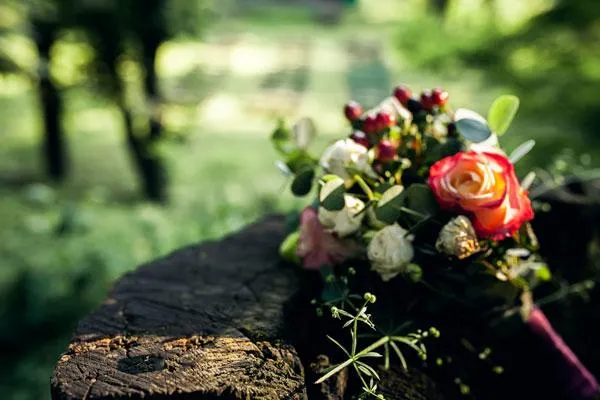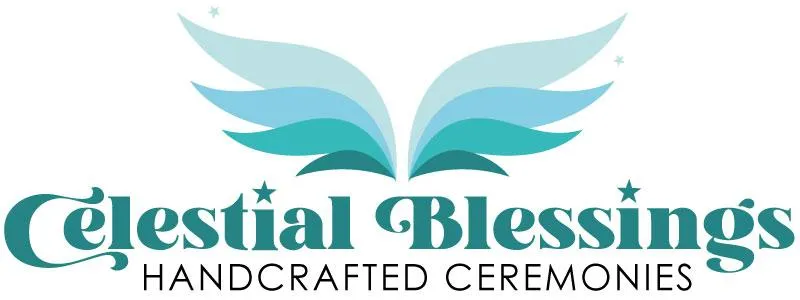Love, Life & Legacy
Whether you’re celebrating love through weddings or vow renewals, welcoming new life with naming days, or honouring the memory of a loved one in a heartfelt farewell, my mission is to create a ceremony that resonates with your heart and soul.
As an experienced celebrant, I believe in the power of words and ritual to mark life’s passages in a deeply meaningful way. Every ceremony I design is handcrafted and infused with your personal story, ensuring that your special day becomes a cherished memory for years to come.
Explore our blog for inspiration, from ideas for personalising your ceremony to insights on creating rituals that honour love, loss, and everything in between, you’ll find tips and guidance to make your moment truly unforgettable.

Cost vs. Closure: The Direct Cremation Dilemma
In recent years, direct cremations have become increasingly common across the UK. For many families, this option can feel like a straightforward, practical solution at a time when grief makes everything else seem impossibly complex.
A direct cremation means that the body of the person who has died is taken straight to the crematorium, with no ceremony, no mourners present, and no service attached. The ashes are returned afterwards to the family.
On paper, it is simple, quick, and undeniably less expensive than a traditional funeral. But while it may appear to remove some of the pressure and financial strain in the immediate aftermath of a death, the reality for those left behind can be far more complicated.
Cost vs. emotional needs
The appeal of direct cremation is often linked to cost. Traditional funerals, with their venues, flowers, limousines, printed orders of service, and catering, can run into thousands of pounds. At a time when the cost of living continues to rise, families may feel they cannot justify such an expense. In this sense, direct cremation can seem like a way to make a dignified choice without the burden of financial worry. Yet money is only one piece of the puzzle.
When we reduce the act of saying goodbye to a loved one to a transaction, something deeply human is lost. The ritual of gathering, the simple act of coming together to mourn, to share stories, to cry, and to remember, is more than just tradition. It is a vital part of the grieving process.
Memorials
For those who choose direct cremation, the understanding is often that a memorial will be held at a later date. Families tell themselves there will be time to plan something more personal, something that reflects the life of the person who has died. In theory, this can be a beautiful alternative: a gathering in a favourite garden, a walk along a beach, a meal in a cherished restaurant, or a celebration that focuses on joy rather than sorrow. But life has a way of moving forward, and those memorials are not always realised. Weeks turn into months, practical responsibilities take over, and sometimes the moment passes. Without a structured point of farewell, grief can become suspended, lingering in the background without resolution.
Even when families do organise a memorial, the absence of the person’s body, the coffin, or even their ashes in some cases, can leave a sense of incompleteness. There is something profoundly human about the act of accompanying someone on their final journey. It is as though the act of being present at a funeral allows the reality of the death to take root. Without it, the loss can feel less tangible, less final, as though part of the mind refuses to accept what has happened. Mourners often describe feeling stuck, as if the world has acknowledged the death but they themselves have not had the opportunity to participate in that acknowledgement.
Communal emotional impact
Grief is rarely straightforward, but when the chance to say goodbye is removed, it can be particularly complicated. People often underestimate the emotional impact of direct cremation. The decision may be made in haste, with the best of intentions. Sometimes it reflects the wishes of the person who has died, who may have wanted to avoid fuss, or believed it would be easier for those left behind. But what feels easier in the moment can create a lingering ache later on. Loved ones may feel guilty for not having insisted on a more traditional farewell, or resentful that they were not given the opportunity to honour the life that meant so much to them.
There is also the communal aspect of grief to consider. Funerals are not only about the person who has died, but about the network of relationships that person leaves behind. Friends, colleagues, neighbours, and extended family members all find themselves affected by a death, and funerals give them a space to gather, to share their grief, and to support one another. When a direct cremation takes place, many of these people never have that chance. Instead, grief becomes a solitary process, carried quietly by individuals who may feel they do not have the right to speak of their sadness without the collective moment of acknowledgement a funeral provides.
This can be especially difficult for those who live far away, or who may not have been in close contact with the deceased in their final years. A funeral offers closure not just to immediate family but to the wider circle of a life lived. Without it, people are left to find their own ways to say goodbye, which can feel fragmented and unsatisfactory. The opportunity to come together, to cry, to laugh, to remember, and to mark the significance of a life is not something that can easily be replicated at a later date.
When direct cremation fits
Of course, there are times when direct cremation is the right choice. Some families take great comfort in organising a memorial that feels entirely authentic, free from the constraints of tradition. Others may feel that the simplicity of direct cremation suits the personality of their loved one. But it is important to recognise that what is simple in practical terms is not always simple in emotional ones. The absence of ritual, the silence where there might have been music or words, can echo in unexpected ways.
The journey of grief
For those left behind, grief is not just about loss but about adjustment. It is the slow process of learning to live in a world without someone you love. Funerals and rituals of farewell are milestones in that process. They do not take away the pain, but they provide a framework in which to hold it, to share it, and to carry it together. Without them, the journey can feel lonelier, more uncertain, and more overwhelming.
Direct cremation may save money, but the hidden cost can be the emotional well-being of those who mourn. It is worth pausing before making the decision, considering not only the wishes of the person who has died but also the needs of those left behind. Saying goodbye is not a luxury, nor is it a formality. It is a human necessity, a bridge between the life lived and the life remembered. When that bridge is missing, those who grieve often find themselves stranded, caught in limbo between denial and acceptance.
Our changing relationship with death
The growing popularity of direct cremations tells us something about our changing relationship with death. It speaks to a culture that values efficiency, simplicity, and cost-saving. But it also raises questions about what we might be losing along the way. Funerals are not only for the dead; they are for the living. They help us to face the truth of loss and to find comfort in community. Without them, grief may remain unspoken, unresolved, and harder to bear.
In the end, the decision about how to say goodbye is deeply personal, and there is no one right way to do it. But it is important to recognise that cost should not be the only factor, and that the emotional needs of family and friends matter just as much. Direct cremation may offer simplicity, but it is not without consequences. For those left behind, the absence of ritual can leave a silence that is difficult to fill, and a grief that feels as though it has nowhere to go.
At Celestial Blessings, I'm here for you through life’s most joyous moments and its hardest challenges.
Whether celebrating love, new beginnings, or saying farewell, I work closely with you to create a heartfelt, personalised ceremony that reflects your unique story and honours your wishes.
Every detail is crafted with care,
ensuring the experience is meaningful
and deeply felt.
About Celestial Blessings
An independent celebrant delivering beautifully handcrafted ceremonies that honour life’s most significant moments. Whether you’re celebrating a wedding, a new beginning, or paying tribute to a loved one, each ceremony is designed for you.
Call now
07980 497026
Memberships

© Copyright 2024 All Rights Reserved.


